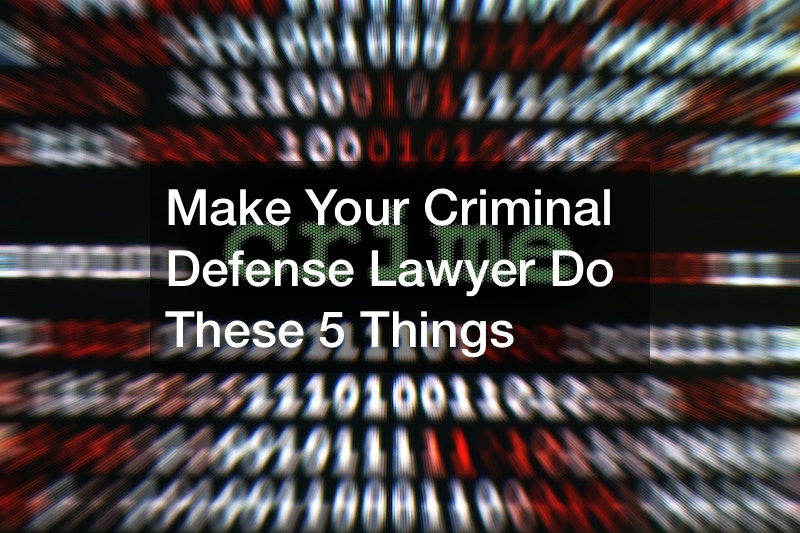Make Your Criminal Defense Lawyer Do These 5 Things

Private and court-appointed criminal defense attorneys gather facts, investigate the presented case against their clients, and attempt to reach agreements with their prosecutors. These agreements may include charges, reduced bail, and sentences. Deal-making has become essential in unclogging the criminal justice system due to several factors. They include overcrowded jails, political and public pressure, and overloaded court calendars. Criminal defense attorneys examine witnesses, assist in formulating a plea, evaluate the prosecutor’s case, and assess potential sentences. They also look into the possibility of such a sentence being imposed by a particular judge. Additionally, they review search procedures, examine witnesses, and collect evidence. A criminal defense lawyer can advise on the potential repercussions of a plea, criminal record, or conviction.
Defense attorneys offer more individualized services by helping the defendant cope with the anxieties and frustrations. These frustrations are normally caused by procedures entailed in the criminal justice system. Naturally, the defense attorney represents the accused at trial if a plea agreement cannot be reached. Keep in mind that the freedom to obtain free representation does not entitle one to the attorney of their choice. A defendant who has been appointed counsel typically isn’t given the same freedom of choice as a defendant who is paying counsel.






